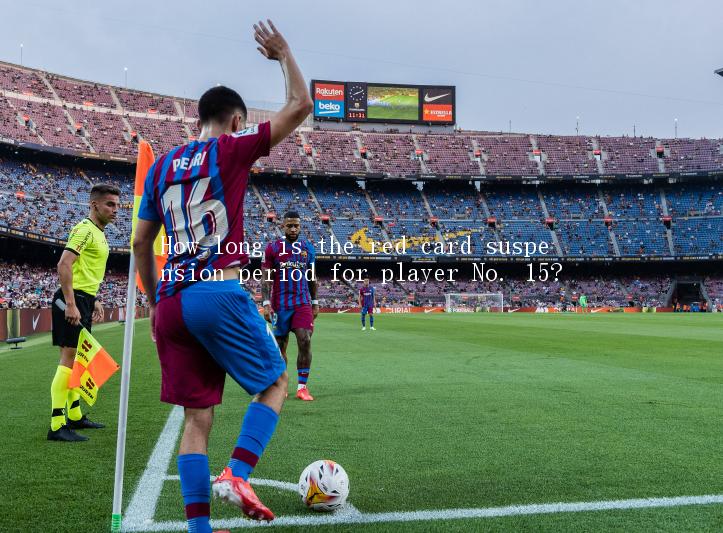How long is the red card suspension period for player No. 15?

In football, a red card is something a player does not want to see because it means he will be punished by suspension. However, the period for which players are suspended is not fixed and depends on the game and the nature of the red card.
If a player is sent off with a red card in an ordinary league game, he is usually suspended for one game. This means he will not be able to play in the next game, whether it is at home or away. This is to punish players for misconduct and ensure fairness in the game.
If a player is sent off with a red card after the game, the suspension period could be longer. In this case, the league or game organizer will investigate the player's behavior and decide the suspension period based on the circumstances. If a player's behavior is deemed a serious violation or injury to other players, the suspension may be extended to several games.
In addition, if a player is sent off with a red card in an international competition, the suspension period may be longer. FIFA will review players 'red card behavior and decide the suspension period based on the circumstances. Normally, a red card will prevent a player from participating in one or more next international games.
Sometimes players 'suspension periods may vary based on their previous records. If a player is sent off multiple times for red cards in a short period of time, the suspension period may be longer. This is to encourage players to correct their behavior and avoid repeated violations.
The period for which players are suspended for red cards depends on the game and the nature of the red card. Normally, an ordinary red card will result in a player being suspended for one game, but in some cases the suspension period can be longer. This system is designed to ensure fairness in the game and discipline among players.
RELATED STORIES






LATEST NEWS







